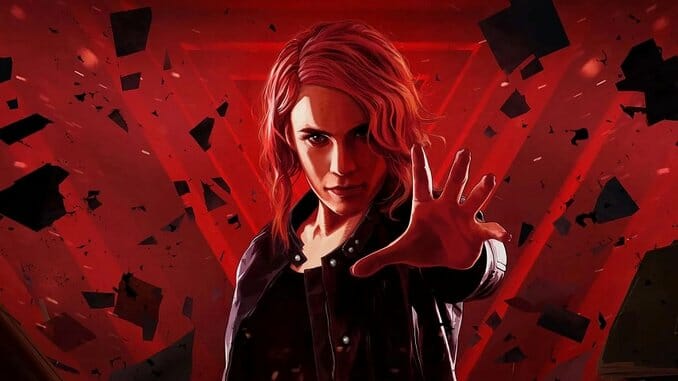The Lake and The Ocean: On Remedy and Expanded Universes

Videogames are designed to keep players engaged for a long time, maybe even forever. This isn’t anything new—since arcades game producers have iterated on new ways of squeezing money from each new title. In contemporary games, the methods have become more fluid than single works. As games move away from single purchase models to subscription services, they come to rely on extensive engagement. Battle passes, cosmetics, expansion packs, game events, and season passes have made it so players never have to stop playing. And where free-to-play, online multiplayer and games as service fail to hold an audience’s attention, narratives must pick up the slack. Where narratives don’t sell, they must become something bigger.
Earlier this month, Remedy Interactive announced that Control would receive new DLC on the 27th. They also announced this DLC would debut the “Remedy Connected Universe.” On Remedy’s website Creative Director Sam Lake writes, “What took place in 2010 in Alan Wake is one of the cases that the Federal Bureau of Control has been investigating. The AWE expansion is the first official Remedy Connected Universe crossover event, bringing more Alan Wake lore into Control.”
Whatever lies within the future content of the game, it will reveal new details that connect Alan Wake, Control and a future Remedy title. The worlds of these games are opening up to become entangled with one another. The announcement asks our minds to imagine just how large the world of these games really is. Do the characters of these games have pre-existing relationships? Just how many of Remedy’s games are connected? How far-reaching are the consequences of the events in each of these stories? The reveal of a connection expands not only the game world, but the audience’s imagination of possibilities. What was once a complex story floods with ideas that lie in an ocean shaped by the publisher. The confines of a single product are demolished to create an infinite field of commodified narratives. As Alan Wake says, “It’s not a lake. It’s an ocean.”
For many fans, an expanding universe can be exciting. It means more stories and time in a world they already love. Characters return and develop in ways that weren’t given enough time previously. Eventually the accumulation of capital creates absurdity as new ideas clash with the old—reminder that Goofy dies in Kingdom Hearts. However, expanded universes are designed with the understanding that each element is lucrative on its own. More content opens a desire that can be designed for and played with. If fans want more, then just the right amount of hints can be revealed to satisfy them while also garnering excitement for another product.
There is no beginning, middle, and end for the expanded universe because there is always potential money to be made. It’s all middle. The universe is a map that endlessly grows with each new product release. A $15 DLC can reveal an entirely new series of details for future plot points. Books and comics expand the canon of the world with marginal identities and stories that never affect the actual games themselves. Details about a universe event may hook players, who dive months long into a free to play mobile game and eventually become paying members of the microtransaction community.